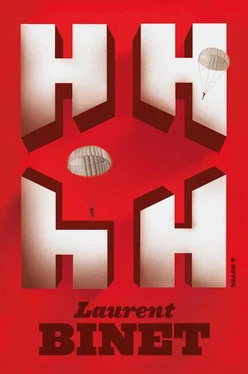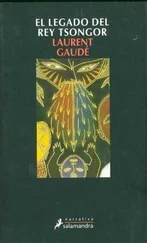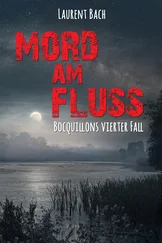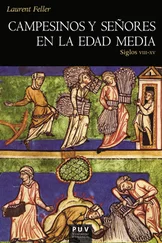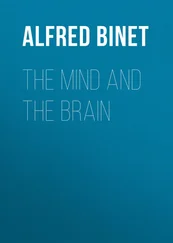I know a restaurant called the Two Cats in the old town, under the arcades: there’s a fresco above it, with two giant cats painted on either side of an arch. But as for the inn the Three Cats, I don’t know where it is or even if it still exists.
Three men are drinking there, and not talking politics. Instead, they’re talking timetables. Gabčík and Kubiš are sitting at a table opposite a carpenter. But this is no ordinary carpenter. He’s the carpenter at Prague Castle, and in this capacity he sees Heydrich’s Mercedes arrive every day. And every evening, he sees it leave.
Kubiš is talking to him because the carpenter is a Moravian, like him, and the familiar accent reassures him. “Don’t worry, you’re going to help us before, not during. You’ll be a long way away when we shoot him.”
Oh, really? So this is Operation Anthropoid’s great secret? Even the carpenter who’s being asked merely to provide the timetable is, without any further ado, told exactly what’s going to happen. I did read somewhere that the parachutists were not always rigorously discreet. Then again, is there any point in trying to conceal everything? The carpenter is hardly going to believe that they’re asking him for Heydrich’s schedule because they’re compiling traffic statistics. But when I reread the carpenter’s testimony I see that Kubiš did tell him, in his best Moravian accent: “Don’t breathe a word of this at home!” Well, as long as he told him…
So every day the carpenter has to write down the time of Heydrich’s arrival and departure. He also has to note whether or not he’s escorted by another car.
Heydrich is everywhere: in Prague, in Berlin, and—this month of May—in Paris.
In the wood-paneled rooms of the Majestic Hotel, the head of the SD gathers the principal field officers of the occupying SS troops to inform them about the operation he’s leading—and which none of his men, nor the world at large, yet know by the name of “the Final Solution.”
By this time, the mass slaughter perpetrated by the Einsatzgruppen has finally been judged too distressing for the soldiers who must carry it out. The old-style killings are gradually phased out in favor of mobile gas chambers. This new system is both simple and ingenious. The Jews have to climb into a truck with the exhaust pipe connected to a length of hose; the victims are then asphyxiated with carbon monoxide. This has two advantages: first, you can kill more Jews at a time; and second, it is easier on the executioners’ nerves. It also produces a curious side effect that the people in charge find amusing: the corpses turn pink. The only inconvenience is that the suffocating victims tend to defecate, so the floor of the truck, smeared with excrement, has to be cleaned after each gassing.
But these mobile gas chambers, Heydrich explains, are still not sophisticated enough. He says: “Better solutions, more advanced and more productive, are on their way.” Then, his audience hanging on his every word, he adds abruptly: “All the Jews in Europe have been sentenced to death.” Given that the Einsatzgruppen have already executed more than a million Jews, you have to wonder who among his audience hasn’t yet understood this.
This is the second time I’ve caught Heydrich overdramatizing this kind of statement. When he informed Eichmann, just before Wannsee, that the Führer had decided upon the physical elimination of all the Jews, his colleague was struck by the dramatic silence that followed this announcement. In both cases, even if nothing was really official beforehand, you can’t say it came as a great surprise. More than the pleasure of delivering a scoop, I think Heydrich enjoyed verbalizing the incredible, the unthinkable, as if to give substance to the unimaginable truth. This is what I’ve got to tell you—you already know it, but it’s up to me to tell you, and it’s up to us to do it. The orator, dizzy from speaking the unspeakable. The monster, drunk on the thought of the monstrosities he heralds.
The carpenter shows them the place where Heydrich gets out of his car each day. Gabčík and Kubiš look around. They pick a spot behind a house where they could wait for him, and from where they could shoot him. But the area is heavily guarded, of course. The carpenter makes it clear they wouldn’t have time to flee, that they would never get out of the castle alive. Gabčík and Kubiš are ready to die—they have been since the beginning, no question about it. But all the same they do want to try to stay alive. They need a plan that gives them a chance of getting away—a small chance but a chance nonetheless—because they both have hopes and dreams for after the war. In the Resistance, among all the Czechs who are risking their lives to help them, there are some brave and pretty young women. I know very few details of my heroes’ love lives, but I do know that after these few months operating secretly in Prague, Gabčík wants to marry Libena, the Fafek family’s daughter, and Kubiš the beautiful Anna Malinova, with her raspberry lips. After the war… They’re not deluding themselves. They know they have only one chance in a thousand of surviving the war. But they want to take that chance. They must, above all, accomplish their mission—absolutely. But that doesn’t mean they want to commit suicide. What a terrible thought.
The two men walk back down Nerudova, the long street with its alchemists’ shop signs, connecting the castle to Malá Strana. Farther down, the Mercedes will have to go around a nice curve. Could be a spot worth looking at…
Heydrich is wrong about the Czech Resistance—it’s not dead yet. In order to collect the carpenter’s daily bulletin on Heydrich’s movements, they find a ground-floor apartment just below the castle. Whenever necessary (every day, I suppose), the carpenter comes and knocks at the window. A young girl opens it. Two of them take turns; the carpenter thinks they are not only sisters but also the two parachutists’ girlfriends—which they might well be. The carpenter and the girls never exchange a word. The carpenter hands over his piece of paper and leaves. Today, he has written: “9–5 (without).” In other words: 9:00 a.m. to 5:00 p.m. Without an escort.
Gabčík and Kubiš are confronted by an insoluble problem. They have no way of knowing in advance whether Heydrich will be escorted by a second car, filled with bodyguards. The statistics based on the carpenter’s reports do not show any fixed pattern. Sometimes without, sometimes with. Without: they’ll have a small chance of getting out alive. With: no chance at all.
So, to carry out their mission, the two parachutists must surrender themselves to this horrifying lottery. They must choose a date with no idea whether Heydrich will be escorted. Whether their mission is extremely risky, or whether it’s actually a suicide mission.
Riding bicycles, the two men keep making the same journey—from Heydrich’s home to the castle, from curve to curve. Heydrich lives in Panenské Břežany, a little spot in the suburbs a quarter of an hour by car from the city center. One part of the journey is particularly isolated: a long straight line with no houses nearby. If they managed to immobilize the car they could shoot Heydrich here without anyone seeing. They consider stopping the car with a steel cable strung tightly across the road. But afterward, how would they get away? They’d need their own car or motorbike. And the Czech Resistance has neither. No, it has to be done in the middle of town, in the middle of the day, in the middle of a crowd. They need a curve in the road. Gabčík’s and Kubiš’s thoughts are curved and twisting. They dream of the ideal curve.
Читать дальше
